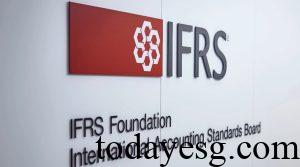
NGFS Updates Central Bank Climate Scenario Analysis Guidelines
Network for Greening the Financial System updates central bank climate scenario analysis guideline

Network for Greening the Financial System updates central bank climate scenario analysis guideline

UK Financial Reporting Council releases sustainability disclosure assurance standards

International Capital Market Association releases climate transition bond guidelines

Taskforce on Nature-related Financial Disclosures releases nature data value chain recommendations

UK plans to incorporate ESG ratings into regulatory policies aimed at regulating the business of ESG rating providers

International Sustainability Standards Board (releases jurisdictional rationale guide for ISSB standards adoption
Due to the rapid development of the ESG industry, the regulatory authorities are also solving some problems that follow, such as the naming rules of ESG funds, the ESG disclosure rules for listed companies, and consumer protection after the adoption of ESG policies. Although the short-term regulatory policies will have an impact on the development of ESG, in the long run, sound regulatory measures will promote the company to complete the ESG transformation more efficiently.
Through tracking and sorting out the ESG regulatory policies of various countries, the ESG regulatory policies have the following characteristics:
1. The regulatory authorities involved in ESG’s regulatory policies are relatively complex. There are not only legislative departments that issue mandatory policies, but also some associations that provide voluntary guidance. At the same time, some new ESG collectives are still being established;
2. The content framework of ESG regulatory policy is gradually increasing. As the supervision needs to be directly implemented into the daily business activities of enterprises and financial institutions, the supervision policies also need to be gradually detailed, and the specific contents involved are constantly increasing;
3. Although ESG regulatory policies differ from country to country, the overall development direction remains the same. When implementing ESG supervision, national regulators will take their own development into account, but still comply with internationally consistent standards as a whole;
This website provides readers with the latest regulatory contents of ESG from regulators around the world. Understanding these contents can provide readers with more complete knowledge of ESG regulation and see the development path of ESG regulation in different countries. For practitioners in the ESG industry, this website can also trace the existing regulatory policies of ESG in the past and compare the ESG regulation in different countries.